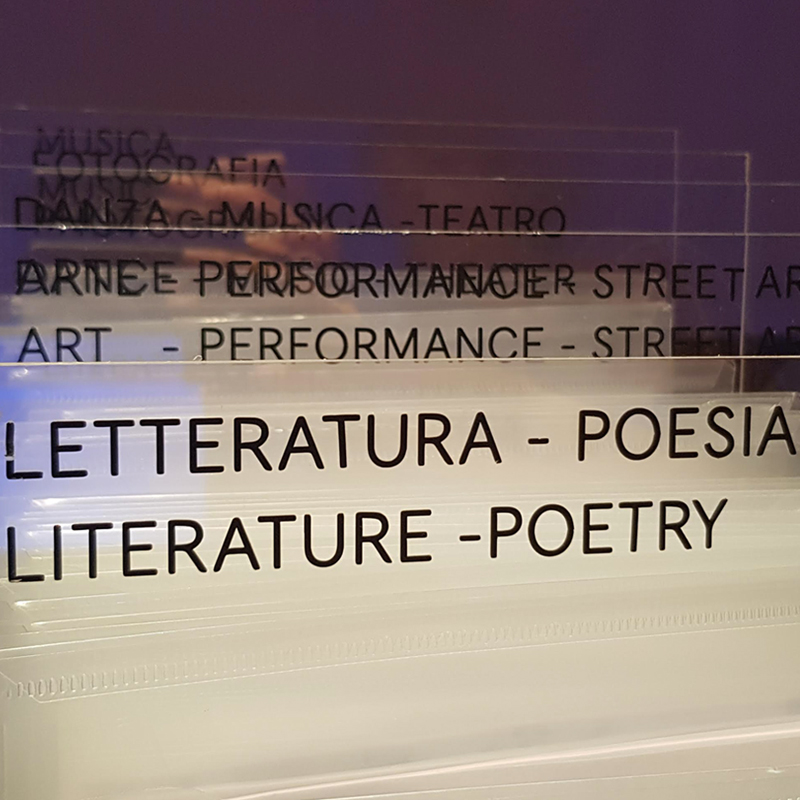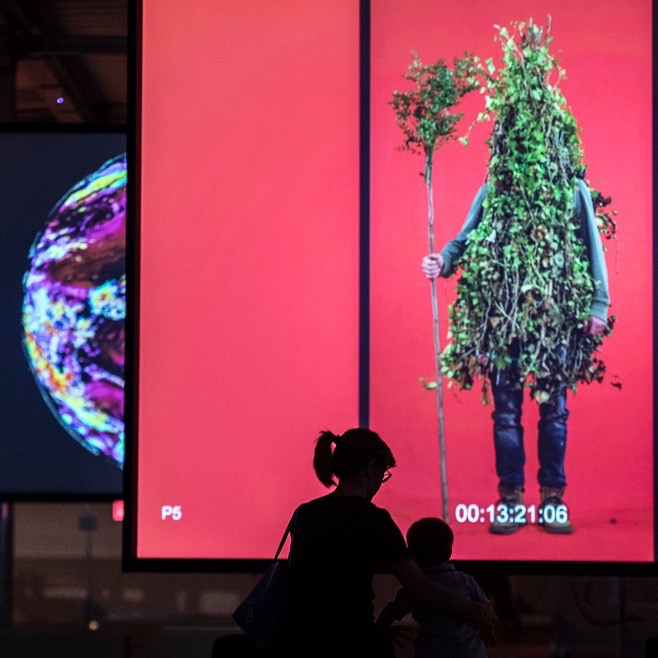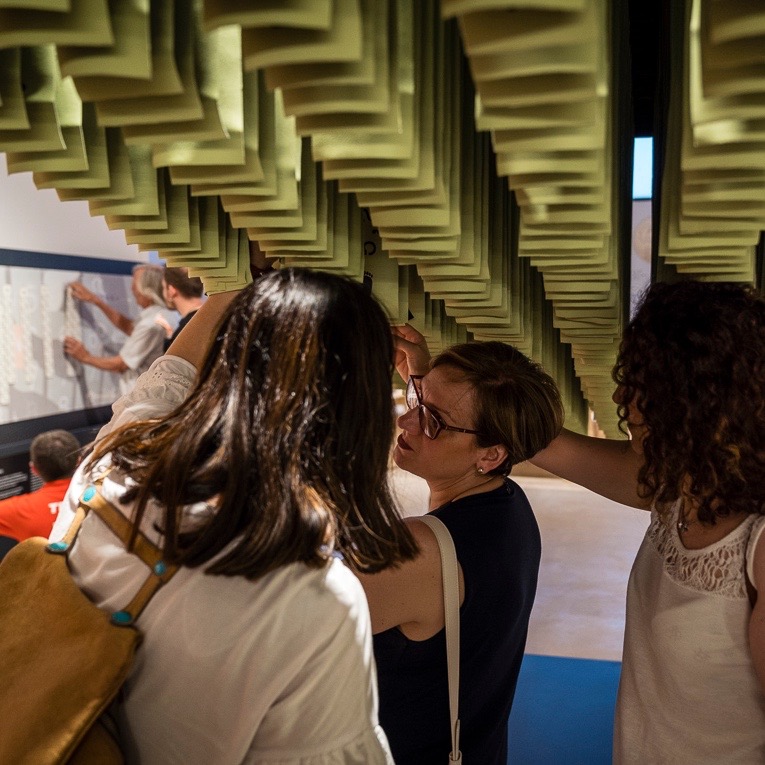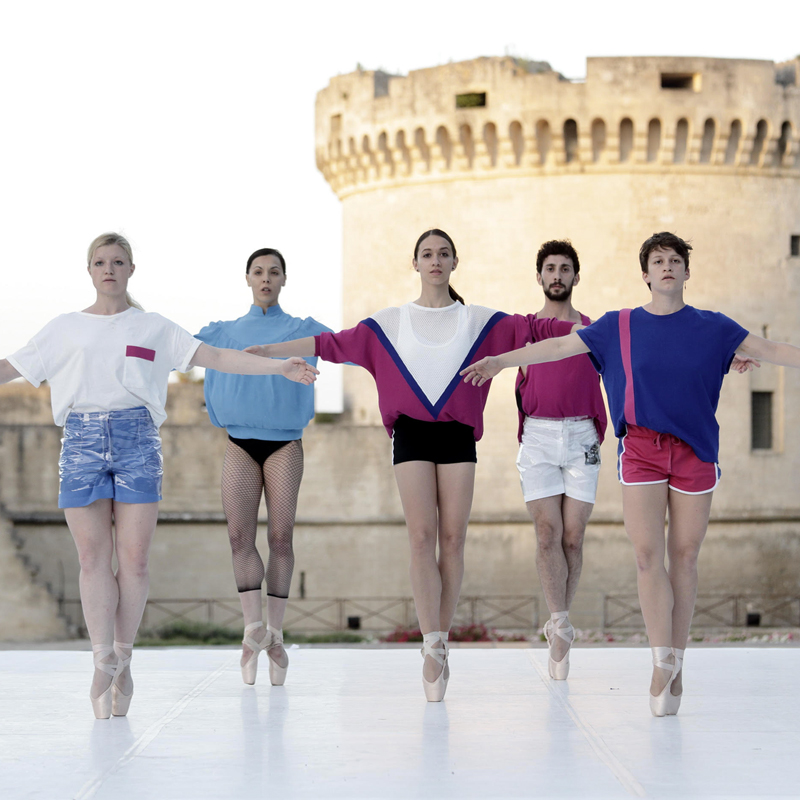Home
Matera - Japan: cultural exchange between Lucanian and Japanese artists

Do you work in the art or culture environment and live in Basilicata? Would you like to host a Japanese artist in 2019 who will offer you hospitality in Japan in 2020?
The aim of the Passport Program is to launch a two-year reciprocal cultural exchange program for Italian and Japanese artists, to foster an exchange of ideas and knowledge and develop strong and lasting bonds between Lucanian and Japanese artists.
In 2019 Lucanian artists and professionals will host a Japanese artist or citizen resident in Japan, while in 2020 Japanese artists and professionals will return the hospitality to Lucanian artists by hosting them in Japan. The Program is managed in partnership by Matera 2019 and EU-Japan Fest, a Japanese non-governmental organisation whose mission is to support cultural contacts of all kinds through the European Capitals of Culture.
The call is open to artists and professionals in the cultural sector who are resident in Basilicata and work in any artistic domain (including arts and crafts, design, graphic work and architecture).
To take part and host a Japanese artist please read the application information carefully and fill in the registration form you will find in the dedicated section under Transparent Administration. The completed form then needs to be sent to the following email address: This email address is being protected from spambots. You need JavaScript enabled to view it..
Lucanian artists or professionals will be responsible for the Japanese artist’s food and accommodation expenses for the entire duration of their stay in Italy (i.e. from a minimum of 5 to a maximum of 10 days, excluding days for travelling to and from Japan). Matera 2019 will contribute a share up to €20 per diem for each artist hosted, up to a maximum of €200. To find out more, see the application information. The deadline for applications is 31 October 2019.
I-DEA, from Mario Cresci to Formafantasma – archives from Lucania on display

The I-DEA project expresses the power of archives in experimental and contemporary ways in one of the most cutting-edge exhibition spaces in Matera 2019: the Hangar Paradiso, situated in the Paradiso quarry on the outskirts of the city.
On 22 March the photographer Mario Cresci opened this amazing artistic journey with ‘The Two Cultures. Artefacts and Archives’ based on research he carried out which shed completely new light on the South of Italy and Lucania. Using archive material including photography, craftwork, science and machinery, Cresci proposed his view of the area from the mid 20th century to the first decades of the 21 st century, with Leonardo Sinisgalli and Mimmo Castellano, sculptures in wood by Di Trani and his son, also revisiting prehistory through Gianfranco Lionetti’s personal archive.
Mario Cresci’s exhibition was followed by ‘Unique Vision: Cultures of Environmental Manipulation’ by Formafantasma, which opened on 8 June and will continue until 15 September. The two Studio Formafantasma designers are some of the most interesting on the international design scene and for I-DEA they presented a video-installation consisting of 5 projections, 10 digital screens and a small group of vernacular objects.
Distributed in space as if to create a complete panorama, and placed at the entrance to the exhibition, the screens and their contents can be seen by visitors either individually or as part of a whole. Unique Vision focuses on the impact of human activity on the land, on actions that people have taken to shape the environment where they live. One of the main features of the I-DEA displays is to keep some elements from previous displays. So for Unique Vision by Studio Formafantasma the curators decided to leave in place the wood carvings by Giovanni and Giuseppe Di Trani, who was custodian at the Museo Ridola in Matera in the 1960s and 1970s, which represent human figures linked to nature, reality and country life.
The exhibition was mounted by the Open Design School and sponsored by Bawer SPA, a bronze partner for Matera 2019.
I-DEA is curated by Joseph Grima and is one of the main projects of Matera 2019: an experiment that considers archives and collections as living organisms that can be used to interpret the complex layers of history of Matera and Basilicata. Five artists and designers will alternate at the Hangar Paradiso, leaving as a legacy in the exhibition space part of the previous exhibition, so as to continue the process of rediscovery of our great cultural heritage.
Opening of ‘The Poetry of Primes’ – a weekend of art and entertainment in the footsteps of Pythagoras

The timeless beauty of numbers and mathematical relations with the universe of art.
This is the theme of ‘The Poetry of Primes’, reflected in the content of the third great exhibition of Matera 2019, under the scientific direction of the eminent mathematician Piergiorgio Odifreddi with installations by the Open Design School. This amazing exploration of the art of numbers, produced with the Museum Service of Basilicata, started at the National Archaeological Museum of Metaponto with the exhibitions
‘Numbers in time. Counting, measuring, calculating’ curated by Claudio Bartocci and Luigi Civalleri and ‘Filling the void. From the symmetries of M.C. Escher to contemporaries’ curated by Federico Giudiceandrea.
From Metaponto we move on to Matera, where Palazzo Acito reopened on Sunday 23 June with the inauguration of three exhibitions: ‘Numbers’ with works by Ugo Nespolo, who has always created images relating to mathematics and to reason; ‘Elements of transcendental
calculation’ with works by Tobia Ravà, a symbolic approach through the infinite possibilities of combining numbers; and ‘Computed Art’, with works by Aldo Spizzichino, interwoven with mathematics and incredibly profound. Three visions, three different pathways that explore the close relationship between art and mathematics.
Elsewhere, in the unique setting of the archaeological area of Metaponto around 1,500 visitors attended the stellar ‘Night with Pythagoras’ on Saturday 22 June. This special event featured performances by actors David Riondino and Valeria Solarino, who played Pythagoras and Hypatia from an original text by Piergiorgio Odifreddi with musical interludes by the pianist Alessandra Celletti. This was followed by the
eminent Piero Angela, the star turn of the evening, who gave a biographical talk on ‘Science and technology in modern society’, focusing on the key themes of communication, the falling birth rate and ageing.
The long night continued with a fascinating lecture by Guido Tonelli who explained the origin of the stars, accompanied by Eleuteria Arena on the cello. At dawn people stretched their tired muscles with a yoga lesson by Rosalia Stellacci and Andrea Stella to the sound of a beautiful concert by the pianist Alessandra Celletti, who played music from her latest wonderful album, produced in vinyl and inspired by the
maths of Pythagoras.
The long weekend closed with two interactive talks in the Auditorium of the University of Basilicata: ‘Prime numbers and their applications’ by the British mathematician Ian Stewart and a reading of ‘Mathematical Adventures’ by winner of the Nobel Prize for Literature John Maxwell Coetzee, alternating with readings by Piergiorgio Odifreddi.
Focus on the relationship between Man and Nature in contemporary dialogues and performances

- Campo aggiuntivo 5:
Credits photo: Salvatore Laurenzana
Contemporary dance and the performing arts have been the protagonists of this first part of Petrolio, a project co-produced by Basilicata 1799. From 11 to 23 June site-specific entertainment and performances were the focus of a dialogue on the great, as yet unanswered, questions concerning the Anthropocene – the geological era in which human behaviour has directly affected environmental equilibrium and generated a new dimension of cohabitation.
Original productions, rehearsals and meetings with the artists explored the theme of the relationship between Man and Nature in a new aesthetic. The vision, ideas and actions are changing; people are no longer the centre of the universe and Nature is beginning to have real importance.
The performances were held in a natural setting without stage lighting in the field, wood and countryside of the Parco del Castello Tramontano in Matera, chosen for its position rather than its architecture. Almost all the shows lacked specific boundaries: the difference is in the way the public and the performers interact with the space.
We start with Giacimenta (Deposits), curated by Francesca Corona and Michele Di Stefano. Their project consists of four episodes of artistic production, designed as an exercise in vision and an exploration model, in which they seek total complicity between the artist and the landscape, between places and people. The choreographers chosen for this episode, which plays with geological, social and human ‘layers’, are internationally renowned.
First was Alessandro Sciarroni, with a Golden Lion Lifetime Achievement award, considered one of the most revolutionary choreographers on the European scene. Starting from his observation of animal migration phenomena, his work focuses on ‘turning’, not only meaning ‘to turn’, but also to change or evolve. Bodies revolve round their axis in an emotional psychophysical journey.
Sciarroni places one element at the centre of the creative process and repeats it relentlessly, using ballet to suggest something different. Unusually, youngsters also twirl incessantly en pointe. In the Matera version of Turning he chose five dancers through a call launched last November.
Another internationally famous artist, performer and choreographer in the Giacimenta section was Maria Hassabi from Cyprus. Her performances are examples of great symbolic value that link tensions and instincts between the environment and the individual in an expanded ritual temporal dimension. Minimalist movements and a gentle slowness, which suggest the need to slow down and a different way of experiencing the flow of things.
Hassabi’s Figures (2019) is a very delicate, complex and sophisticated work and for the first time she chose to use her way of working with a group of very young girls selected through a call launched in May. 10 dancers were chosen from the Lucania area to take part in this extraordinary experience, working with a professional who has performed in theatres, museums and public spaces worldwide, including MoMa in New York, the Pompidou Centre in Paris and the Walker Art Center in Minneapolis.
Closing the first weekend of performances was choreography by Silvia Rampelli, who in a preparatory workshop presented movement, action and dance activities for senior citizens. Once a week the residents of the Brancaccio rest home in Matera took part in a gentle and novel activity, eager to try a small breathing exercise, about being together, perception and vision. With Child’s portrait we wonder: where are we? When are we? What’s around us?
The final performance event in this section was Le Merende by the artist collective Industria Indipendente, mainly devoted to performance, theatre and visual arts. Le Merende occupied this space following the principle of sharing, free giving and offering as a way of informing artistic practice. A place transformed into a natural habitat, where you can take a break between one performance and the next, with everyone present and a lively DJ set.
On the second weekend, opening the Sedimenti section were contemporary dance performances and live music with a DJ by WHO CARES? | Ecologia del dialogo. In a co-creation project four young choreographers – Bassam Abou Diab, Yeinner Chicas, Olimpia Fortuni and Leonardo Maietto – from opposite ends of the Mediterranean and two musicians – Ayman Sharaf and Stefano Zazzera – joined together to present a performance around the themes of the Anthropocene.
The scene was an imaginary piece of land in the Mediterranean, a geographical location that defies association with any particular people or places and represents the styles of architecture and traditions of the Lebanon, Italy and Spain, the countries where the artists come from.
As well as performances, meetings with the artists and rehearsals to kickstart the creative process, dialogues also started in the section Geo-logical Thought with Marcello Di Paola, an expert in environmental philosophy. Events planned for September include the team of architects, landscape architects and gardeners Volumezero, Bartolomeo Dichio, Alba Mininni, philosopher Emanuele Coccia and lecturer Gianfranco Pellegrino.





